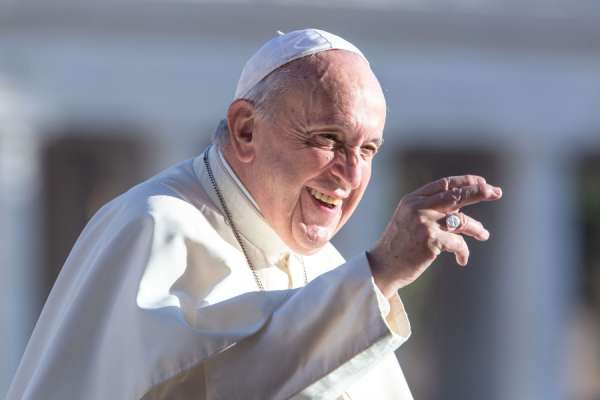Pope Francis celebrates Mass on the occasion of the visit to Lampedusa

Pope Francis will celebrate Mass on the occasion of the seventh anniversary of his visit to the Italian island of Lampedusa.
The mass will take place at 11.00 local time on July 8 in the chapel of the Pope's home, Casa Santa Marta, and will be streamed live.
Due to the coronavirus pandemic, attendance will be limited to staff from the Migrants and Refugees section of the Department for the Promotion of Integral Human Development.
Pope Francis visited the Mediterranean island on July 8, 2013, shortly after his election. The trip, his first pastoral visit outside Rome, indicated that concern for migrants would be at the heart of his pontificate.
Lampedusa, the southernmost part of Italy, is located about 70 miles away from Tunisia. It is a main destination for migrants from Africa seeking entry into Europe.
Reports say that during the coronavirus epidemic, migrant boats continued to land on the island, which has received tens of thousands of migrants in recent years.
The pope chose to visit the island after reading harrowing reports of migrants who die while attempting the crossing from North Africa to Italy.
Upon arrival, he threw a crown into the sea in memory of those who had drowned.
Celebrating mass near a "boat graveyard" containing the remains of wrecked migrant boats, he said: "When I heard about this tragedy a few weeks ago, and I realized that it happens too often, she constantly came back to me as a painful thorn in my heart. "
“So I felt that I had to come here today, to pray and to offer a sign of my closeness, but also to challenge our consciences so that this tragedy would not happen again. Please, don't let it happen again! "
On October 3, 2013, more than 360 migrants died when the ship carrying them from Libya sank off the coast of Lampedusa.
The pope celebrated the sixth anniversary of his visit last year with a mass in St. Peter's Basilica. In his homily, he called for an end to the rhetoric that dehumanizes migrants.
“They are people; these are not simple social or migratory problems! "He said. "'It's not just about migrants', in the twofold sense that migrants are first and foremost human persons and that they are the symbol of all those who have been rejected by today's globalized society."